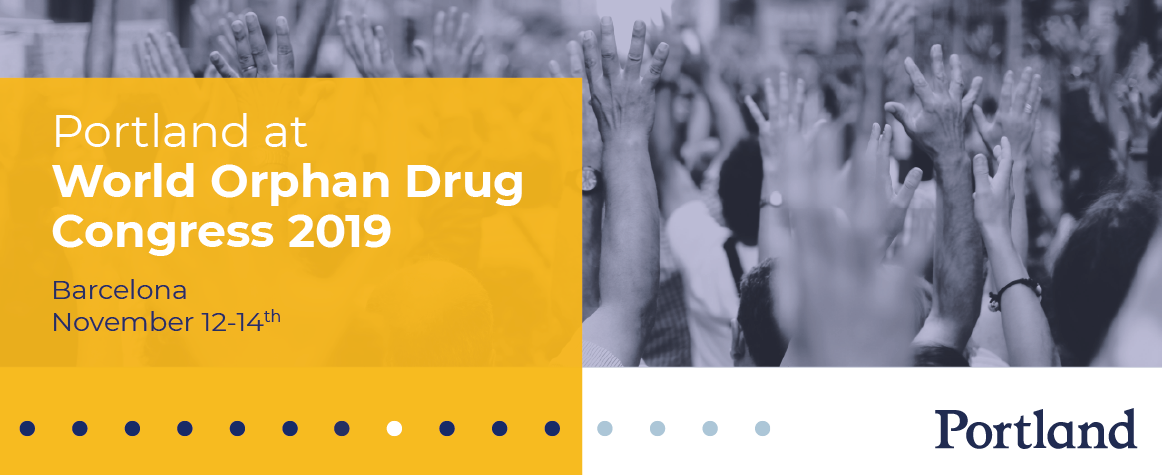Day One
The Congress kicked off with a conversation about the changes brought about by the European Commission and the European Medicines Agency (EMA) to support the discovery of rare disease medicines.
Twenty years on from the European Orphan Regulation and much has changed.
Ten-year market exclusivity and bespoke authorisation approaches, among other levers, have all served to boost discovery for underserved rare diseases.
But challenges remain:
- Ninety-five per cent of people living with a rare disease do not have access to a therapy.
- Only one per cent of orphan medicines given orphan designation by the EMA actually make it to patients.
This disconnect between innovation and access is impossible to ignore, it plays out every day very publicly and very loudly around the world, communities coming together to demand their right to innovative medicines.
Delegates spoke of the mountains to be climbed when innovating in this space – scarce and scattered knowledge, the diagnostic odyssey, and of course the million-dollar question – how much is society willing to pay when a breakthrough comes?
This becomes acute when gene therapy was tackled – when you are collapsing a life time of benefit into once intervention, how should governments respond? The national payor message is clear – we have limited resource, we must be fair to the whole population, and can only work with accessible medicines, reasonably priced.
So, what of solutions?
Industry should move from a conversation around price, to one of budget impact. Payors must recognise the wider benefits of rare disease medicines to patients, parents and carers. Above all, Europe is stronger together – in rare diseases at least. Only by leveraging the deeply connected patient and research community will we ready societies for the next wave of rare disease innovation. As one delegate said – no country alone has the capacity to diagnose, treat and manage these complex and diverse conditions. We must cross borders and come together, bridging the divide between the expert and informed audience here in Barcelona, with the ever vocal and activist court of public opinion.
Engaging on value beyond the dossier: A Portland roundtable
A lively roundtable discussion hosted by Portland saw congress delegates from across the European rare disease landscape, including payers, patient advocacy groups, patient campaigners, industry and early science organisations, come together to debate the changing external environment in the assessment of orphan and rare disease medicines, and the complexity of planning for and managing this new opportunity.
Key topics:
- New voices are not to be ignored: Online and social media platforms are playing an increasing role in the debate around rare diseases, in providing a voice to splintered or smaller campaigning groups integral to the debate particularly in ultra-rare diseases, and in complicating traditional engagement strategies.
- The need for an informed public debate: It’s everybody’s role (industry, advocacy, clinical, government, evaluation bodies) to better educate the public and politicians, both about rare diseases, and the need for system reform, to support more informed external debate and engagement on these topics by those who have an influential external voice.
- What happens here, is relevant over there: In-country access, affordability and assessment issues are no longer constrained to national decision-makers, and so cross-border collaboration between all of those stakeholders involved in these evaluations and debates is increasingly necessary.
- Capturing the patient voice in the right way: Collaboration between patients and industry should start much earlier, to ensure that the right outcomes and narrative can be captured in evidence-based evaluations, which in turn supports the assessment of a treatment’s value. We must stop leveraging the patient voice, and instead achieve true involvement and engagement.
Day Two
For early risers, day two started with a conversation about gene therapy price and access. A big topic to tackle pre-9am. The panel of industry and payor gene therapy leaders were initially optimistic. Yes, there are some big hurdles to overcome – uncertainty of just how long these “one time” therapies will last in the body, the ability of publicly funded systems to withstand single upfront payment, and a scattered patient population making long-term data collection to prove value a real challenge.
However, creativity and collaboration were the watch words in this debate.
Creativity – “precision finance” – a new world of financing models are being tried and tested, or what MIT is calling “precision finance for precision medicine”. Annuity models, payment by results, staged licensing. The response from the payor was cautiously optimistic. Engage early, let us help you shape your clinical programme and HTA submission, but don’t assume we will have the capacity or the capability to make some of the more novel models work in practice.
Collaboration – “stronger together” – echoing day one, it became starker still that cross-border collaboration will make or break gene therapy access. Only by aggregating expertise, data and negotiating power will countries withstand the hit to their health budgets and regulatory resilience.
This optimistic opener was soon followed by the inevitable caveats.
Payment models do not operate in a vacuum. It is not possible to talk about new commercial approaches without tackling the elephant in the room – HTA reform. HTA in Europe is designed for chronic therapies, and almost all bodies are having to look again at how they contend with gene therapies – both for rare and less rare conditions, like cancer. And then the patient voice came through loud and strong – challenging the panel’s “fairy-tale” perspectives on price and access. There is a deep lack of trust in industry and payors to do what they say they will do – collaborate, innovate and make access possible. The panel were somewhat crestfallen at this – forced to acknowledge this is going to be really hard and we must all stay realistic about what we can achieve and by when.
To find out more about Portland’s rare disease expertise, please email [email protected].

